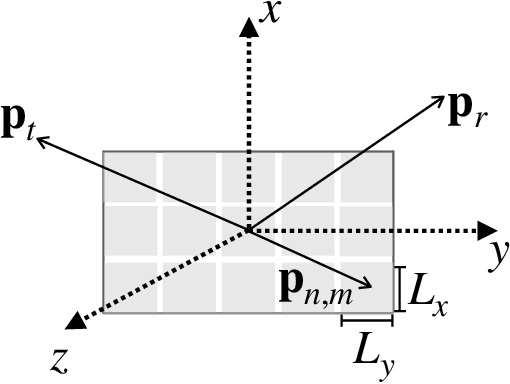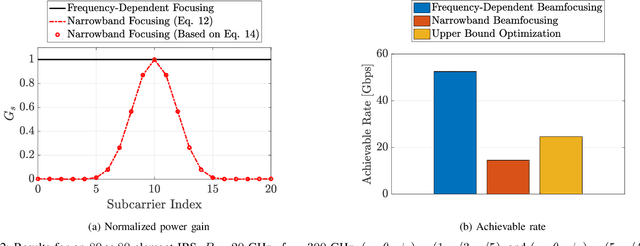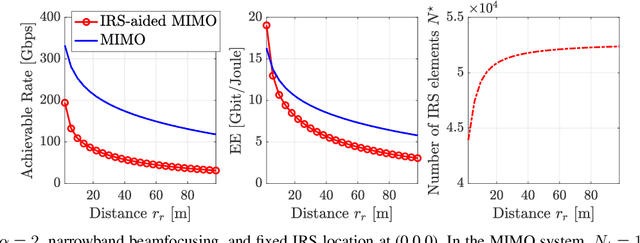Intelligent Reflecting Surface-Aided Wideband THz Communications: Modeling and Analysis
Paper and Code
Oct 29, 2021


In this paper, we study the performance of wideband terahertz (THz) communications assisted by an intelligent reflecting surface (IRS). Specifically, we first introduce a generalized channel model that is suitable for electrically large THz IRSs operating in the near-field. Unlike prior works, our channel model takes into account the spherical wavefront of the emitted electromagnetic waves and the spatial-wideband effect. We next show that conventional frequency-flat beamfocusing significantly reduces the power gain due to beam squint, and hence is highly suboptimal. More importantly, we analytically characterize this reduction when the spacing between adjacent reflecting elements is negligible, i.e., holographic reflecting surfaces. Numerical results corroborate our analysis and provide important insights into the design of future IRS-aided THz systems.
 Add to Chrome
Add to Chrome Add to Firefox
Add to Firefox Add to Edge
Add to Edge